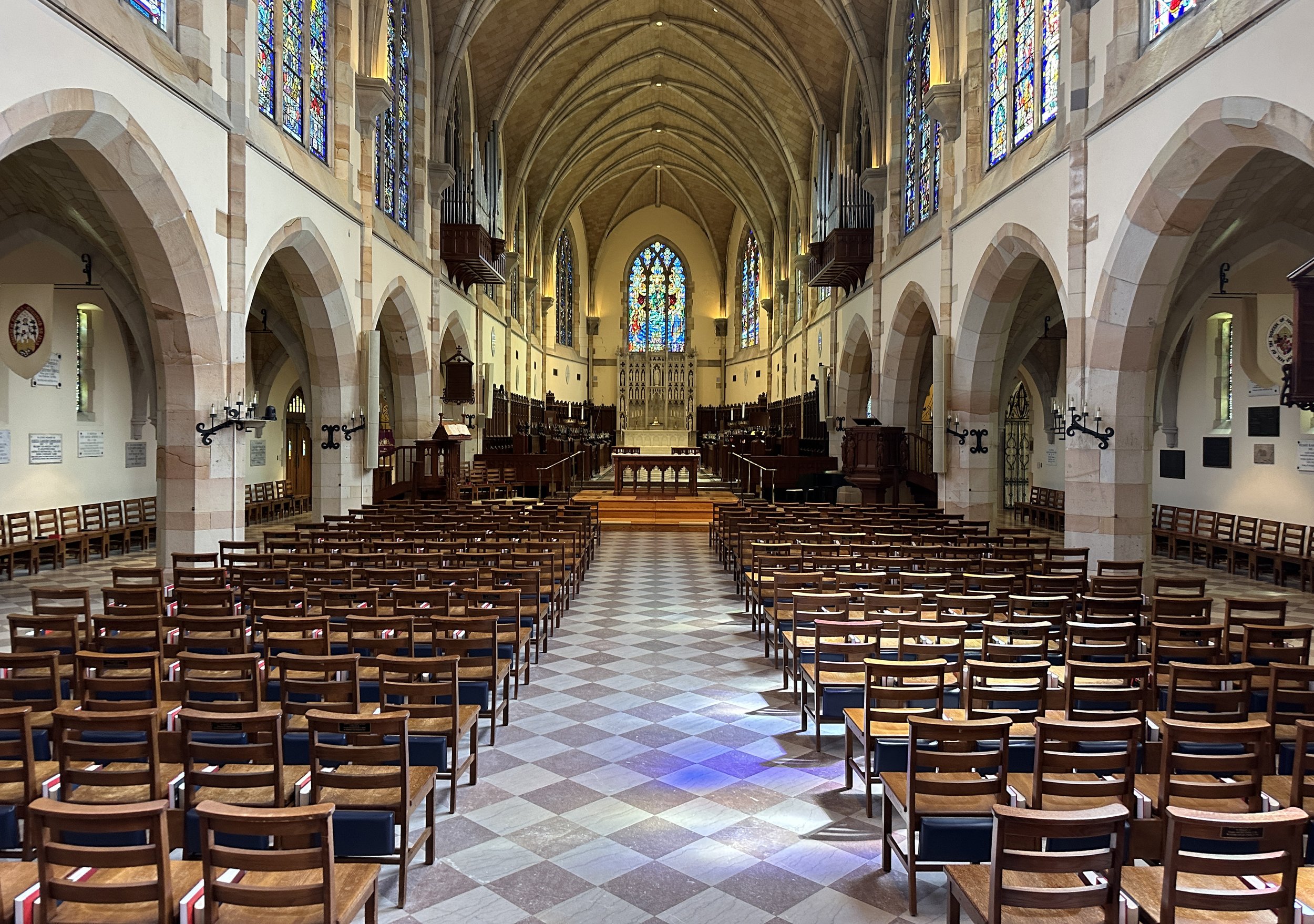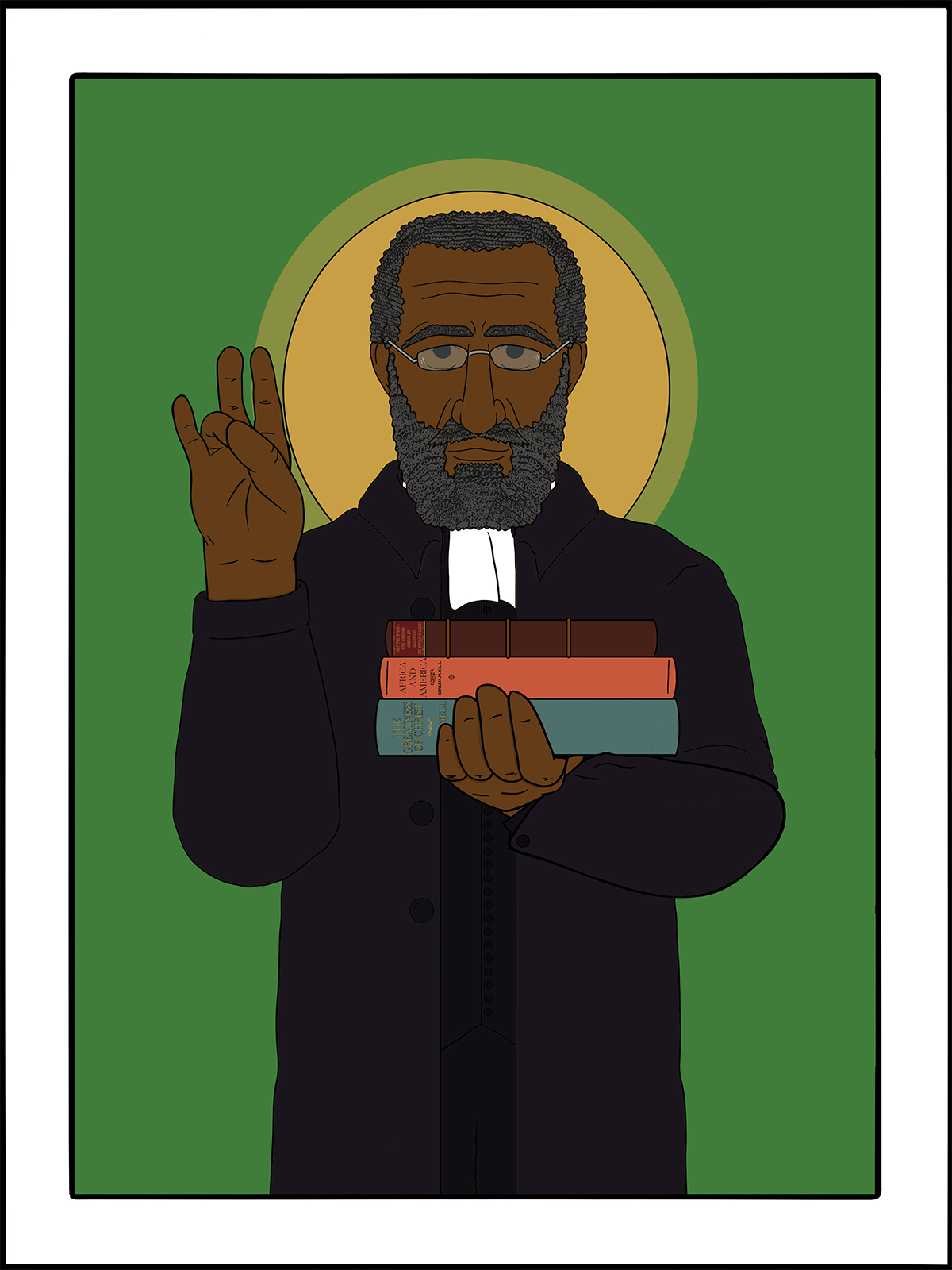
September 10
Alexander Crummell
Priest, 1898
art by Rev. Kirsten Kohr of Geneva, Ohio Almighty and everlasting God, we thank you for your servant Alexander Crummell, whom you called to preach the gospel to those who were far off and to those who were near: Raise up, in this and every land, evangelists and heralds of your kingdom, that your church may proclaim the unsearchable riches of our Savior Jesus Christ; who lives and reigns with you and the Holy Spirit, one God, now and for ever. Amen.
Born March 3, 1819, in New York City, Alexander Crummell struggled against racism all his life. As a young man of color, he was driven out of an academy in New Hampshire, dismissed as a candidate for Holy Orders in New York, and rejected for admittance to General Seminary. Ordained in 1844 as a priest in the Diocese of Massachusetts, he left for England after being excluded from participating in diocesan convention.
After receiving a degree from Cambridge University, he went as a missionary to Liberia, where a model Christian republic seemed possible. The vision embraced by Crummell included European education and technology, traditional African communal culture, and a national Episcopal Church headed by a Black bishop. He traveled extensively in the United States, urging Black people to emigrate to Liberia and to support the work of the Episcopal Church there.
Upon returning to Liberia, he worked to establish a national Episcopal Church. Political opposition and a loss of funding finally forced him to return to the United States, where he concentrated his efforts on establishing a strong urban presence of independent Black congregations that would be centers of worship, education, and social service. When Southern bishops proposed that a separate missionary district be created for Black congregations, Crummell created a national convocation to defeat the proposal. The Union of Black Episcopalians is an outgrowth of that organization.
Crummell’s ministry spanned more than half a century and three continents. Everywhere, at all times, he labored to prepare Black people and to build institutions that would serve them and provide scope for the exercises of their gifts in leadership and creativity. His faith in God, his perseverance in spite of repeated discouragement, his perception that the church transcended the racism and limited vision of its leaders, and his unfailing belief in the goodness and greatness of Black people are the legacy of this African-American pioneer.
He died in Red Bank, New Jersey, in 1898.
Excerpted directly from “Lesser Feasts and Fasts 2022,” p. 402-403.

